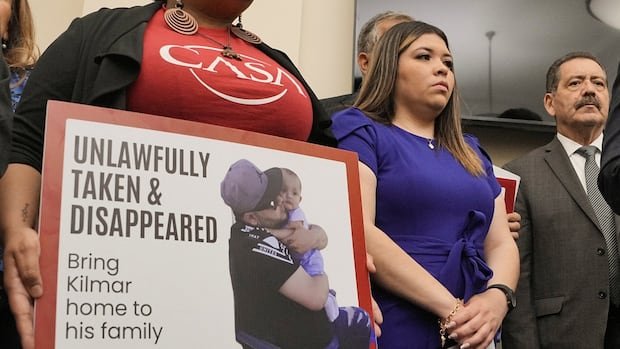Kilmar Abrego Garcia, previously deported to El Salvador in error, has been brought back to the United States to face criminal charges related to an alleged human smuggling operation. The Trump administration claims he played a significant role in illegally bringing immigrants into the country for financial gain.
Following a months-long standoff between Trump officials and the courts over his deportation, Abrego Garcia’s return to the U.S. marks a new chapter in the ongoing saga. U.S. officials presented an arrest warrant to El Salvador President Nayib Bukele, accusing Abrego Garcia of orchestrating immigrant smuggling into the U.S.
Abrego Garcia is set to stand trial in the U.S., with potential deportation to El Salvador upon conviction. U.S. Attorney General Pam Bondi emphasized the significance of his return, stating, “This is what American justice looks like.” Abrego Garcia’s lawyers have dismissed the charges as unfounded, disputing the allegations against him.
Despite efforts by Democrats and immigrant rights groups to secure Abrego Garcia’s release, he now faces prosecution in the U.S. His return has sparked mixed emotions among his family, who have endured significant hardships throughout the ordeal.
The indictment against Abrego Garcia, unsealed recently, outlines accusations dating back to 2016, including allegations of smuggling individuals into the U.S. illegally and mistreating women during transportation. While the charges are serious, his legal team maintains his innocence.
The case has drawn attention for its complex legal implications and the conflicting narratives surrounding Abrego Garcia’s background. Immigrant rights advocates criticize the administration’s deportation policies, while officials portray him as a gang member who posed a threat to society.
Abrego Garcia’s long history in the U.S., where he built a life with his family, contrasts with the allegations made against him. Despite the deportation error and subsequent legal battles, the resolution of his case remains uncertain as it navigates the judicial system.
As Abrego Garcia’s case unfolds, it exemplifies the ongoing debate over immigration enforcement and due process rights in the U.S. The complexities of his situation underscore the challenges faced by individuals caught in the crosshairs of immigration policy.

